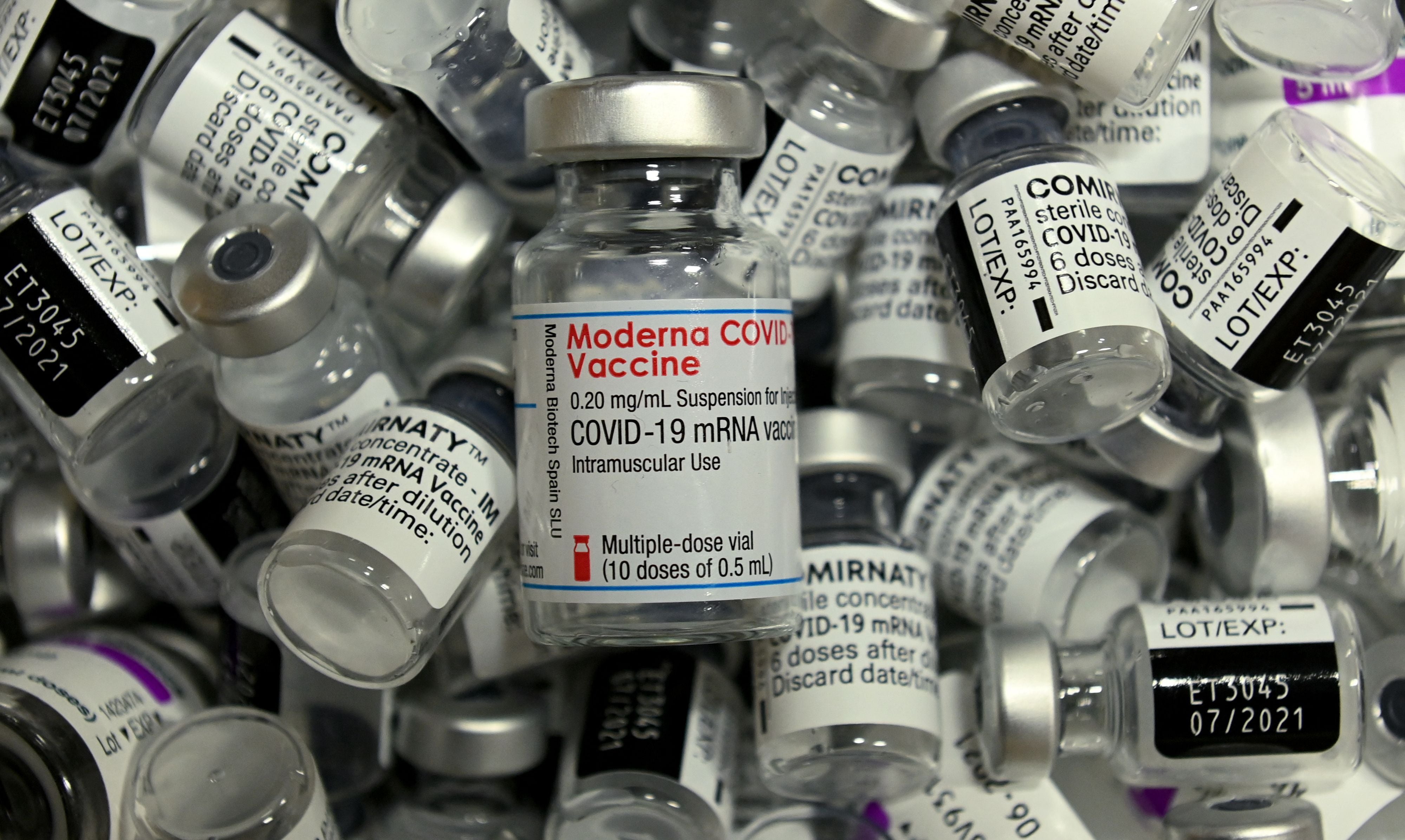Why it’s hard to stomach big pharma’s complaints about Covid vaccine patent waivers
The patent system exists to reward innovation but it has been abused on repeated occasions by drug companies. If a waiver gets vaccines to where they are needed then refuseniks, including the UK, should fall into line with Joe Biden, writes James Moore


No, nay, never, was the reaction of the pharmaceutical industry to America’s potentially game-changing move to back a vaccine patent waiver in an attempt to improve global supplies.
The argument of the drug companies is: innovation would be stifled, threatening the development of future treatments, and that would be disastrous for patients.
Do they have a point?
Treatments of any kind are expensive to research, develop and see through the necessarily strict trials that regulators in most countries require before they can be brought to market. The successful ones tend to be greatly outnumbered by failures, which also have to be paid for.
Patents, and the exclusivity they grant to reward those who produce new treatments, ensure that investors get a fair return for the risks they take and secure the funding necessary to produce new drugs.
Even if you make it clear that the proposed waiver for vaccines is both temporary and a one-off designed to defeat a deadly pandemic, what’s to stop a repeat? What’s to stop campaigners demanding that the next cancer-cell-killing super-drug is taken off patent to make it affordable so more lives can be saved? If that’s going to happen every time we launch a new product, the reasoning goes, resources will be diverted to other activities from which profits can be made, and there’ll be no new cancer treatments of any kind. Is that what you really want?
When put like that, it sounds persuasive. But the argument would be a lot easier for pharmaceutical companies to make if some among their number hadn’t sacrificed any moral authority by engaging in the deeply cynical exploitation of the patent system for the purposes of price gouging.
One of the more obvious example of this is the case of insulin. When Frederick Banting and his colleagues first isolated it as a treatment for diabetes, they sold the patent to the University of Toronto for just $1 in the hope that everyone who needed it would be able to afford it. Today people are literally dying for the lack of it in the US. Older insulins have been steadily replaced by newer, incrementally improved, but also much more expensive products covered by additional patents, which maintain their manufacturers’ pricing power in a system towards which the government takes a hands-off approach.
In Britain that doesn’t happen, because the government purchases in bulk for all of us and thus has much more power over the price that we collectively pay.
The Competition and Markets Authority has nonetheless brought a succession of cases against pharmaceutical companies, and levied heavy fines, having found a wide range of anti-competitive practices.
These have included pay-for-delay agreements, in which patent holders strike agreements with generic manufacturers to stay out of the market. They have also been found to have withdrawn existing treatments with the aim of forcing patients on to more expensive therapies.
Those are just a couple of examples. There are plenty more.
The closer you look at it, the more you find the patent system being manipulated and abused for the purposes of profiteering.
Another factor that comes into play with some of the Covid vaccines is the role that public money has played in their development. That’s most obviously the case with AstraZeneca’s teaming up with Oxford University, and it played a role in the early stages of Pfizer’s treatment as well.
So this isn’t simply a story of private capital riding to the rescue and needing to be rewarded for taking a risk for the benefit of humanity. Taxpayers in various countries helped pay for it, so shouldn’t they get a reward too?
The industry is on stronger ground when it criticises bad practices by governments, such as the hoarding of supplies and interference with exports. Big countries have sometimes been as guilty of behaving badly as big pharma. Vaccine nationalism is a curse that ultimately favours no one.
Nonetheless, the scenes from the world’s pandemic hotspots amply demonstrate the need to get vaccines into places where they are in short supply, and if waivers could assist that, then so be it.
The pharmaceutical lobby says they might not. So come up with a better idea then. Maybe that involves licensing; maybe not. Just be aware that self-serving plans aimed at protecting profits are going to get shot down as efforts to bring refuseniks such as the EU, Canada, and the UK on board with waivers continue. And get on board they should.
Join our commenting forum
Join thought-provoking conversations, follow other Independent readers and see their replies
Comments
Bookmark popover
Removed from bookmarks